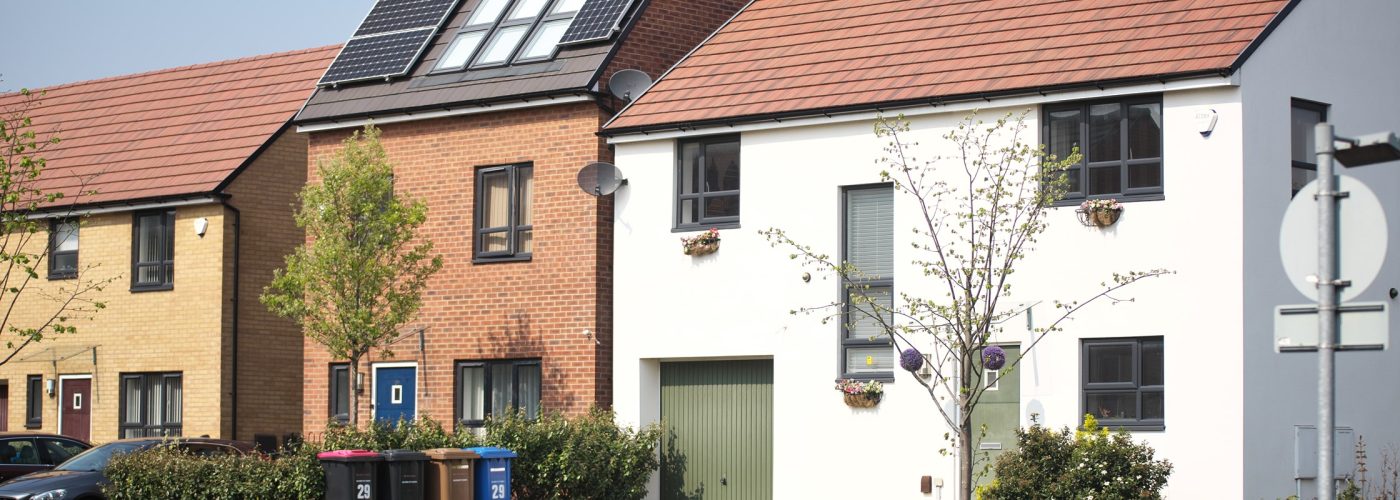- Unique research project shows Greater Manchester’s ten councils are spending at least £75m a year on temporary accommodation
- The number of people in temporary accommodation in Greater Manchester has risen by 71% in the past four years – to 5,649 households
- There are 7,679 children living in temporary accommodation in the city-region
- New Housing First Unit will work to end the housing crisis, delivering 75,000 new homes in the current parliament and driving up rental standards
- Councils will work together to increase value for money and improve quality of temporary accommodation in Greater Manchester
- Approach is part of GM’s Housing First philosophy – that good health, good education, and good jobs cannot come without a good home.

A UNIQUE piece of research commissioned by the Greater Manchester Combined Authority (GMCA) reveals the huge financial strain temporary accommodation costs are placing on local authorities.
Each year, an estimated £74.6 million is spent on renting temporary accommodation across Greater Manchester.
The number of people living in temporary accommodation in Greater Manchester is now at an all-time high, with 5,649 households living in hostels, Bed and Breakfast and other temporary accommodation. These households include 7,679 children.
Over the past four years the number of households in temporary accommodation in Greater Manchester has increased by 71% compared with 26% across England.
Today the Mayor of Greater Manchester Andy Burnham and the leaders of the city-region’s ten local authorities confirmed the launch of a new Housing First Unit to tackle the roots of the housing crisis by:
- Increasing housing supply – Ensuring that Greater Manchester builds the new homes that our city-region needs, including affordable homes and single-occupancy accommodation. With the right support, Greater Manchester is ready to deliver 75,000 new homes in the current parliament.
- Driving up housing standards – Protecting renters through the UK’s first Good Landlord Charter and acting against rogue landlords by empowering residents to request a Property Check followed up by enforcement action where necessary.
- Supporting Greater Manchester residents – With more devolved powers and funding, we can help prevent homelessness by transforming the way we support residents with education, skills, and health and wellbeing services.
Housing First is part of the GMCA’s pioneering approach to delivering public services and tackling the problems that are hampering wellbeing and economic growth. It is based on the philosophy that good health, good education, and good jobs cannot come without a good, permanent home.
The Mayor of Greater Manchester Andy Burnham said:
“The £75m our councils are spending on these rents is just the tip of the iceberg. It doesn’t include the cost of finding that housing, let alone the human toll of living in such an insecure situation.
“Our reliance on temporary accommodation has left thousands of families in a limbo that is blighting their life chances and damaging their health and wellbeing. Living in a hostel or B&B makes it harder to cook healthy meals, do homework, hold down a job, see friends and family or visit a doctor when you need to.
“Our Housing First Unit will work to make sure that everyone in Greater Manchester has a home that is safe, secure and sustainable. Giving everyone a good, safe home would be one of the best investments the country could make and would take pressure off other public services and public finances.”
Demand for social housing in Greater Manchester outstrips supply by 260 per cent. In 2022/23, there were 13,551 social lettings in Greater Manchester – half as many as ten years ago. There were 86,595 households vying for these properties, of which 35,177 were in a priority group for social housing
The Mayor and Greater Manchester’s ten council leaders also approved a plan to work together to deliver better quality and better value temporary accommodation.
The cost and demand for temporary accommodation has spiralled in recent years due to a lack of social and affordable housing and the high cost of private rentals.
Local authorities must abide by strict rules around how they cover these rental costs and can only recover a fraction of what they spend from central government. In Greater Manchester, councils were only able to recover 42% of the £74.6 million they spent on temporary accommodation, creating an annual net loss of £43million.
The GMCA will explore new ways of coordinating, delivering and preventing the need for temporary accommodation. It will also draw lessons from current best practice across the city-region, such as Manchester City Council, which has been able to buck the national trend, reducing the number of households in temporary accommodation and all but eradicating the use of Bed and Breakfasts.
Portfolio Lead for Housing First, City Mayor of Salford Paul Dennett, said:
“The spiralling cost of temporary accommodation represents an existential threat to local government. Following 14 years of previous Government-driven austerity, we’ve seen councils up and down the country going bankrupt, with temporary accommodation placing an ever-bigger burden on their budgets.
“In recent years, the lack of social and council housing has massively increased landlords’ bargaining power, leaving our residents struggling to secure a place to call home. That market pressure has also made it harder for councils to negotiate rates and secure temporary accommodation. Without urgent and radical action, annual financial losses for local authorities will just keep growing, putting further pressure on overstretched budgets, continuing to push councils into bankruptcy.
“There is no quick fix for this housing crisis which has been 40 years in the making. The Right to Buy has led to chronic under-supply of social and council housing. We’ve lost 24,000 homes to Right to Buy in the past two decades and not enough new homes are being built to replace them. Rising land values, an inability currently to capture land-value uplift in the National Planning Policy Framework, ongoing land assembly challenges, and skills and experiences shortages are also making it harder to build truly affordable housing.
“We welcome the progress the new Government is making, including the introduction of the Renters’ Rights Bill, which will end no fault eviction and recent changes to the Compulsory Purchase Regulations to tackle issues with ‘hope value’ and the implications for the viability of developments.
“Through regional collaboration and with the support of central Government, we can work to deliver Greater Manchester’s vision of Housing First and collectively work to mitigate the worst effects of the housing crisis.
“By taking a collaborative, co-ordinated and evidence-based approach, we hope to realise economies of scale and deliver temporary accommodation that is better value for money, while reducing the need for temporary accommodation by significantly increasing & accelerating the supply of Truly Affordable Net Zero homes.
“A good home is the cornerstone of a healthy, happy life for our residents. By working together, we can improve the standard of temporary accommodation and make sure they are consistent across Greater Manchester.”
Building, Design & Construction Magazine | The Choice of Industry Professionals





